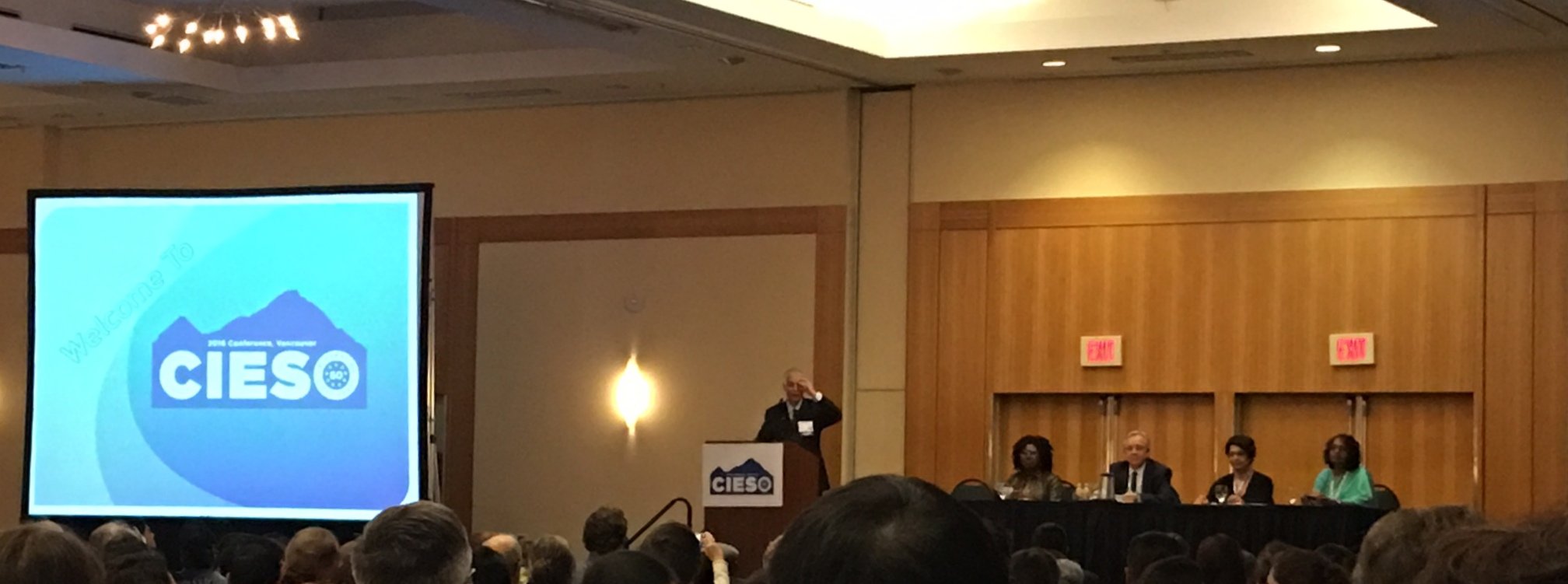What do you get when you bring nearly 2,700 attendees from countries all over the world—representing international NGOs, ministries of education, academic institutions and for-profit educational companies—together in one place? In one acronym: CIES. From March 6-10, Nuru attended the 60th annual meetings of the Comparative International Education Society (CIES) in Vancouver, B.C.
Nuru’s focus for its Education Program is literacy and early grades reading. There were many great sessions on this topic at CIES. We gained lots of positive feedback from colleagues in the sector on Nuru Literacy Outreach in Kenya during a panel session that also highlighted early grade reading interventions in Uganda and Canada. Attendees were interested in learning more about Nuru and how its Education Program fits into the holistic, integrated model. As Julia Frazier from FHI 360 stated in one session, “Student learning outcomes do not occur in a vacuum.”
In addition, leading experts and researchers in the field of international education presented on benchmarking early grades reading, cost effectiveness, the use of randomized control trials, results from local and national reading programs and more. Overall, it was a great opportunity to glean lessons learned from leading scholars in early grades reading. Here are my three main takeaways from the conference:
- USAID has set forth three main goals for its education initiatives in developing countries and the rest of the sector is following suit. Nuru is already in alignment with Goal 1 of All Children Reading as early grades reading is our main focus. In the future, Nuru is looking to address educational needs in impoverished communities in conflict-affected areas which will create alignment with Goal 3, Education in Conflict. At Nuru, we also believe in the importance of reading and how learning to read early can stop the intergenerational cycle of poverty. Reading is regarded as one of the areas where you can affect children’s lives and futures the most.
- Collaboration is increasing across the sector. Partnering with Save the Children to implement the Literacy Boost program in Ethiopia has given Nuru credibility and allowed us to compare best practices and engage with other organizations like World Vision who are also implementing the Literacy Boost model. We are working to learn from these organizations on issues such as cost-effectiveness and what levels of impact we should expect given our contexts and populations.
- Nuru has the opportunity to play a key role in supplementing and bridging gaps in large, national initiatives addressing literacy. Initiatives such as Tusome in Kenya or the READ TA program in Ethiopia (both led by USAID and RTI) do a great job of leading systemic change at the national level and working to reform curriculum and materials. In the areas where Nuru works, schools and communities often are lacking supplemental materials such as storybooks and individual teacher training. Nuru is providing these trainings and materials. In Ethiopia, we also provide mothertongue instructional assistance in a native language not yet addressed by the READ TA program. We are grateful to these programs and the Ministries of Education for working with Nuru to help fill these structural gaps.
It was exciting to be able to share Nuru Education with this group while learning from thought leaders in the sector. We will continue to tweak and improve our programs based on all of the great lessons we gleaned at CIES. Nuru is thankful for the opportunity to be a part of this community in helping improve the lives of children all over the world.


